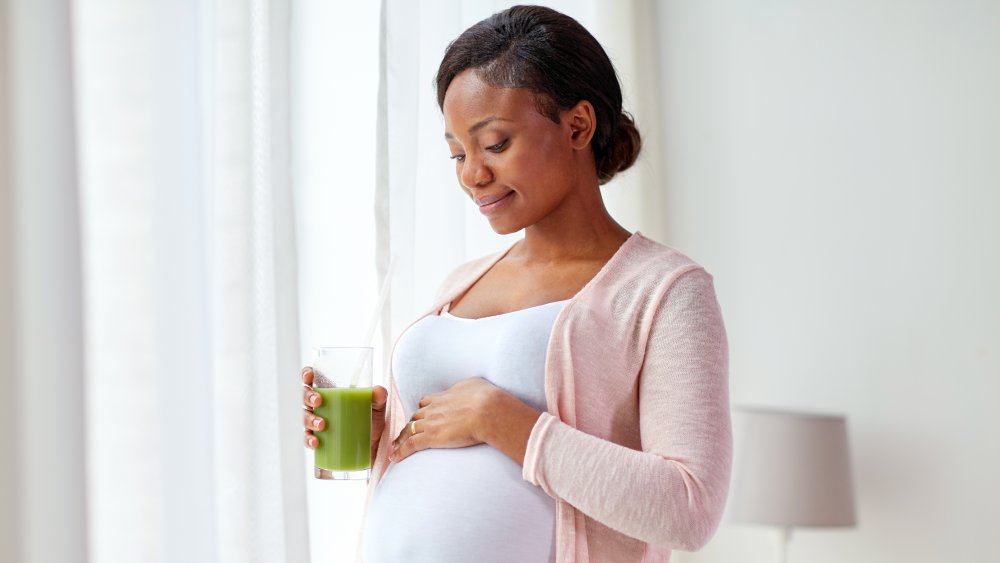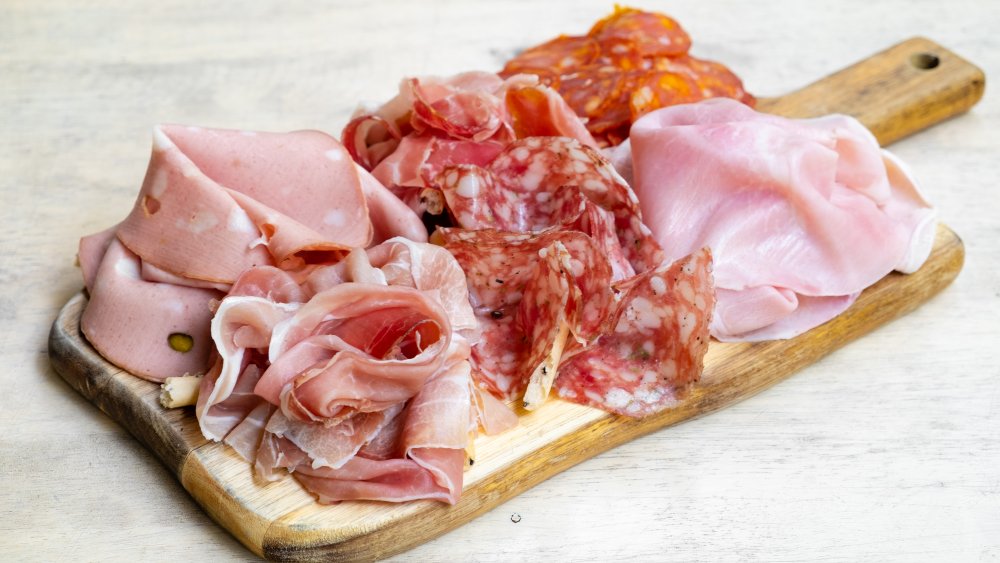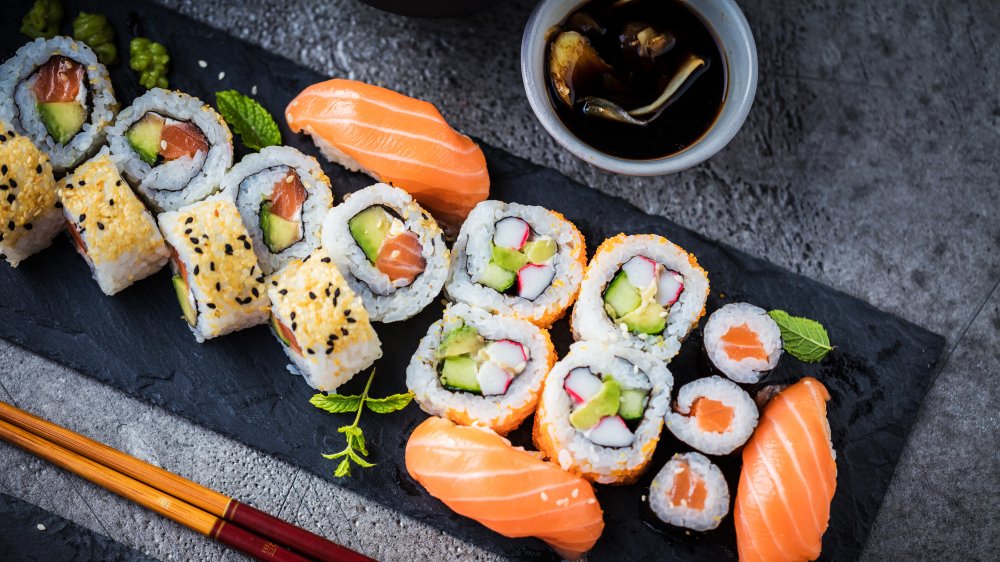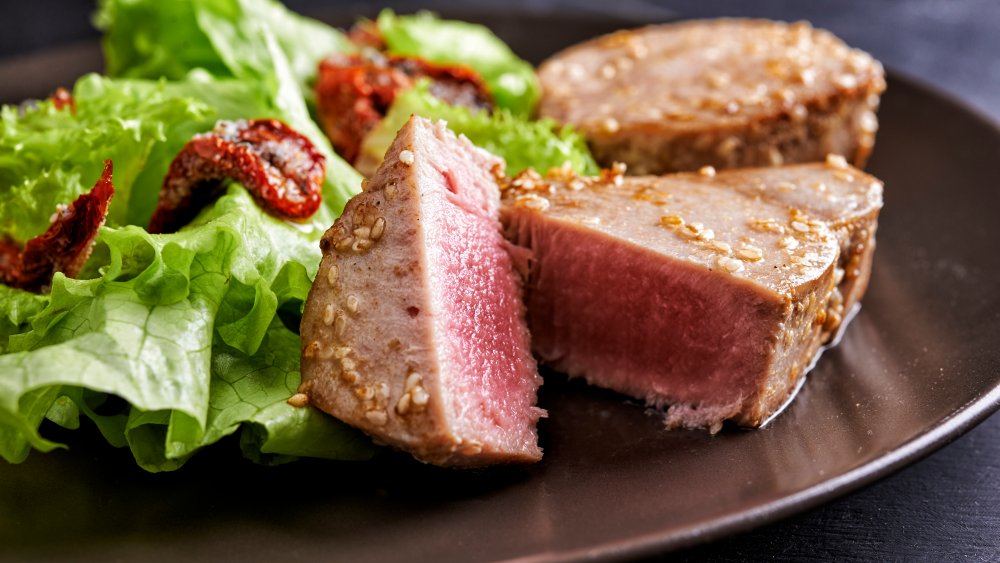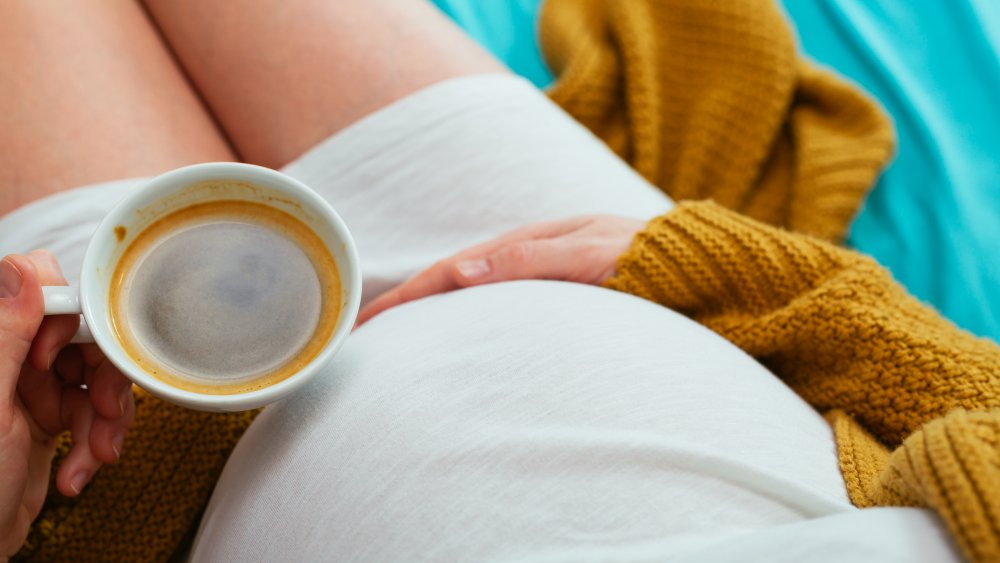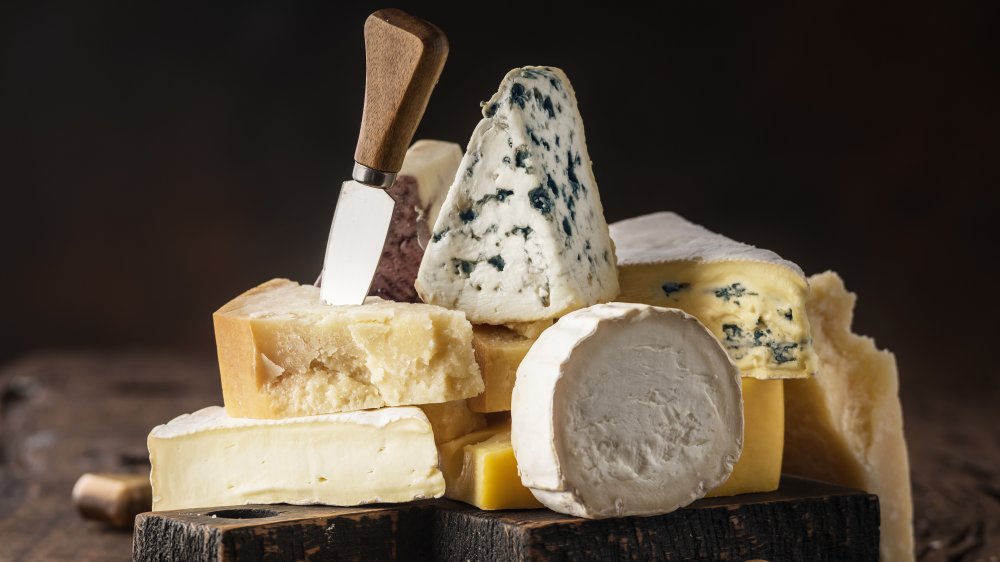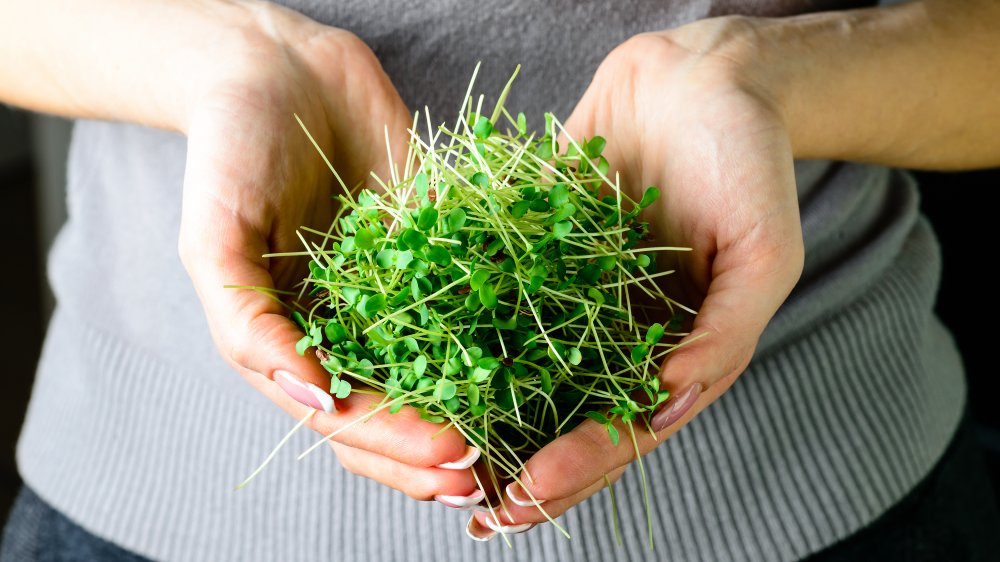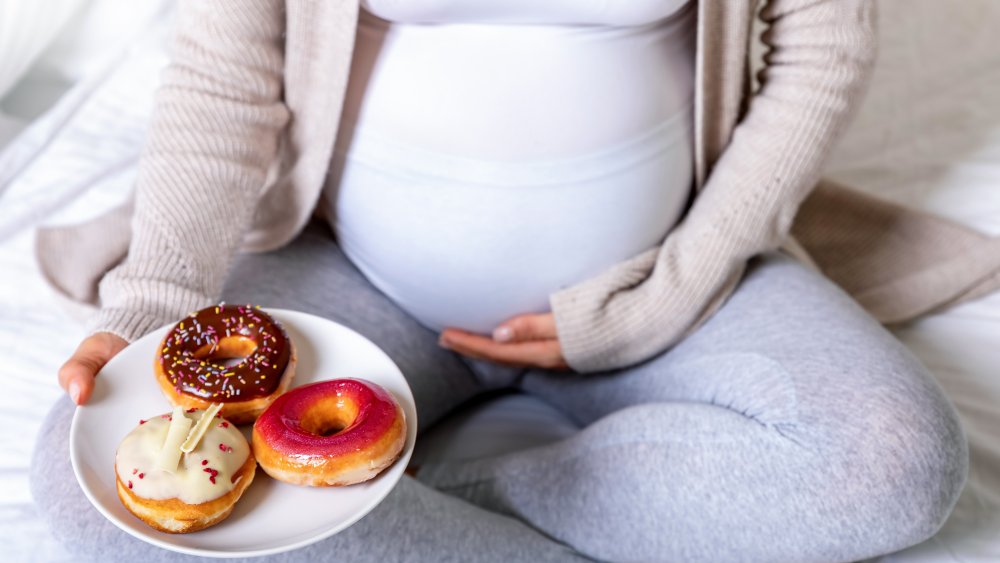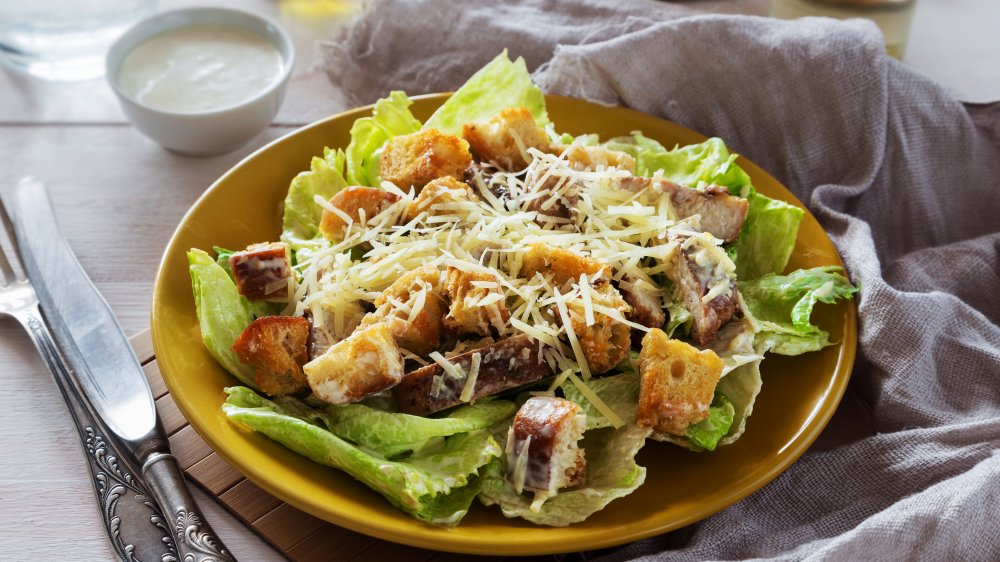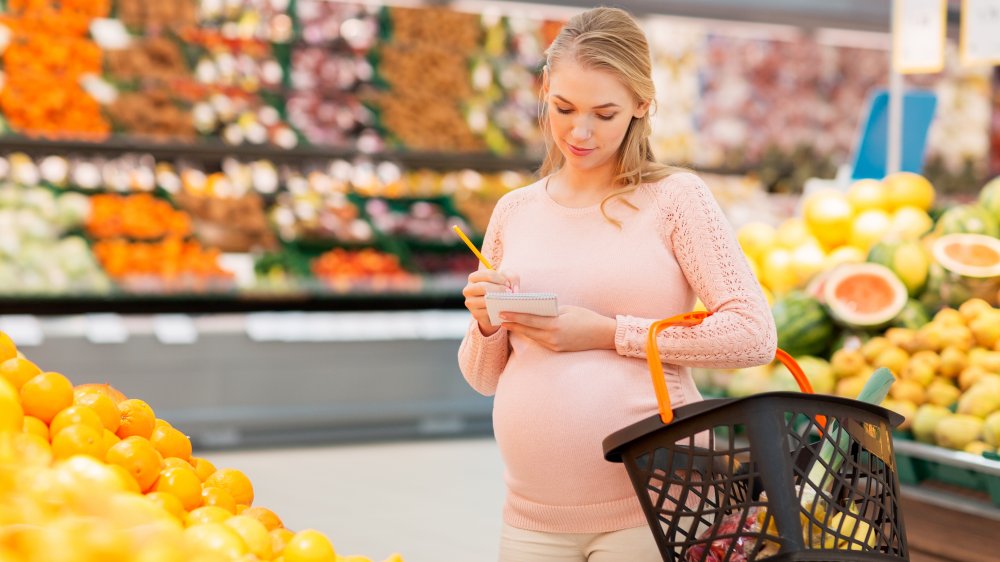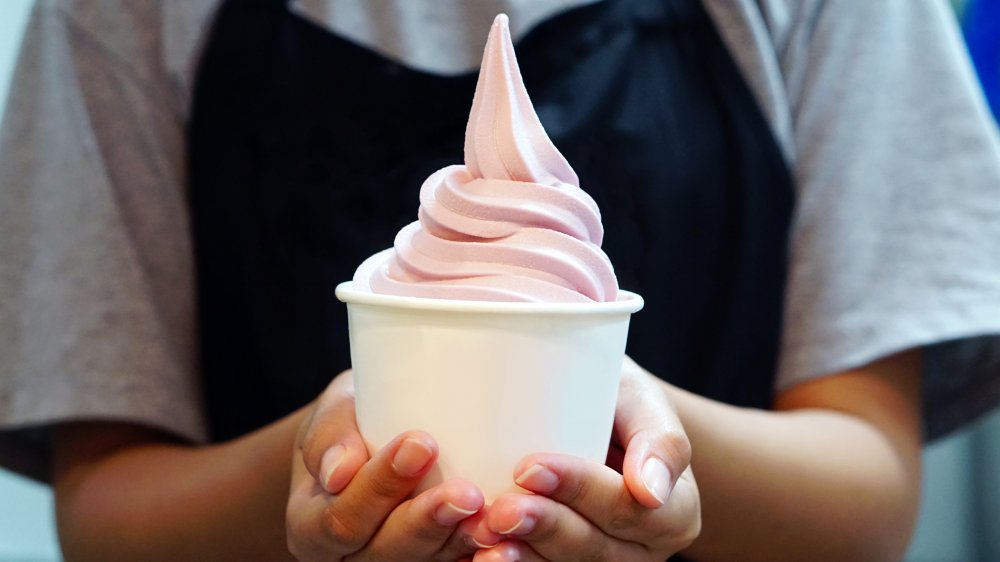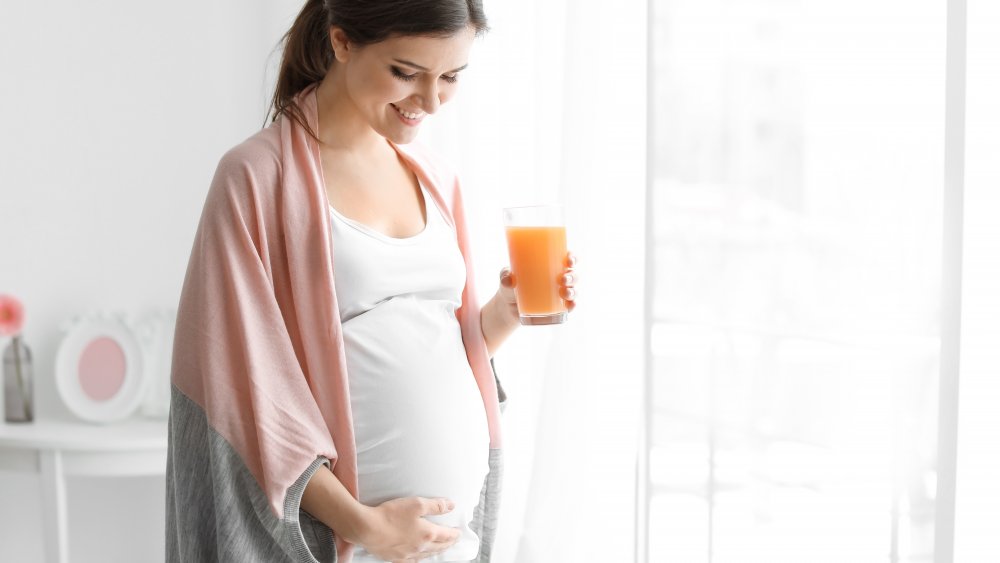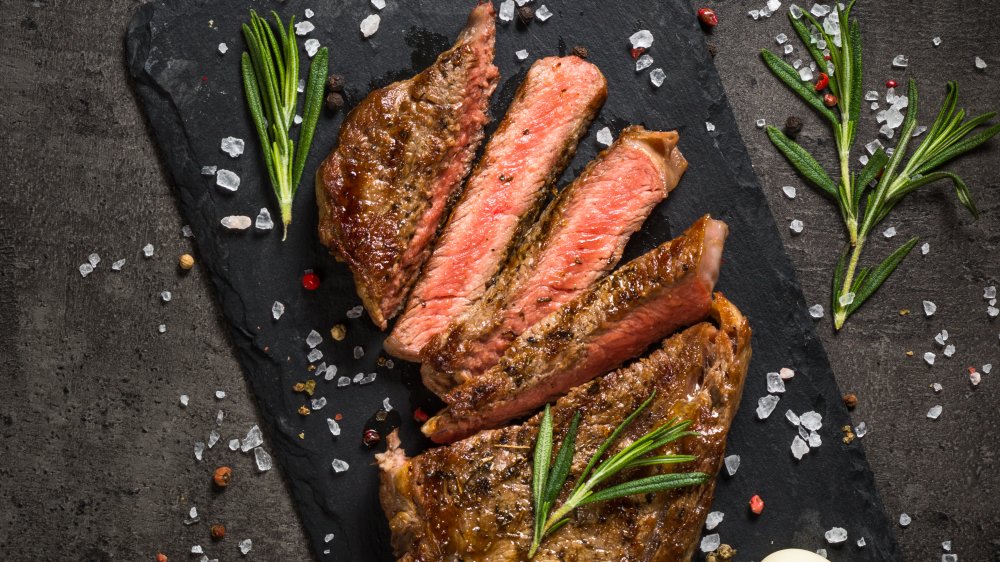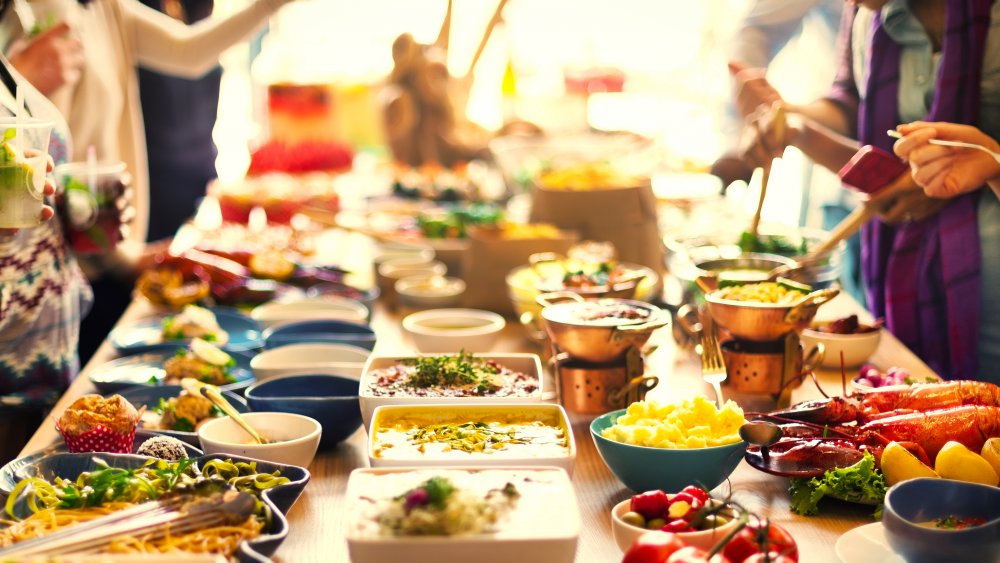Avoid These Foods During Pregnancy At All Costs
If you're experiencing food cravings during your pregnancy, know you're not alone. It's estimated that 50 to 90 percent of American women go through this. And, certainly, your diet is going to be front and center for nine months as you try to seek out all the healthy foods your changing body requires and the nutrients your growing baby needs. You will also want to indulge some of your cravings — because pregnancy is a unique opportunity to treat yourself, right? Well, not exactly.
The truth is: It is more important than ever to pay close attention to what you're eating and make sure you are getting all the important vitamins, nutrients, and protein necessary to help you grow a tiny human being. What's more, there is a whole list of foods you will need to actively avoid during those trying three trimesters of pregnancy. Want to know what you should skip? Health Digest is breaking it all down.
Go cold turkey on cold cuts during pregnancy
If you have an intense hankering for an Italian sub during those long nine months of pregnancy, you are sadly going to have to do without your genoa salami, beloved mortadella, and really any kind of deli meat. The unfortunate truth is that cold cuts are pretty much contraband for expecting mamas.
According to the American Pregnancy Association, deli meats present the risk of Listeria, a rare kind of bacteria, that can cause major complications for a mom-to-be and her developing baby. While it affects a very small population every year (about 2,500 people), pregnant women are "more susceptible" to it and are "more vulnerable to serious complications and even death." One way you can have your cold cuts and stay safe from the foodborne illness: Heat them up until they are "steaming."
Yes, we hear you. A piping hot sub sandwich does not have the same appeal, but, better safe than sorry! Just maybe apply that smear of mayo after you get your ham out of the microwave.
Skip the sushi and raw fish during pregnancy
If a tuna roll or two is your go-to take-out dinner, we have some bad news for you: Any and all raw fish is off limits during pregnancy. Yes, that means sushi, sashimi, and ceviche is off the take-out rotation for the next 40 weeks — give or take.
According to FoodSafety.gov, all fish need to be cooked to at least 145 degrees Fahrenheit in order to vastly decrease the risk of Listeria and other potentially harmful bacteria that can make moms-to-be and their developing babies seriously ill.
Registered dietitian Dara Godfrey explained to Healthline that a pregnant woman's immune system is suppressed, making her more susceptible to foodborne parasites.If you are absolutely desperate for some sushi, compromise and choose a roll that has vegetables and/or cooked seafood or meat in it, obstetrician-gynecologist Lisa Valle suggested to the publication. Replace your rainbow roll with a spicy crab roll, a chicken katsu roll, or even a cucumber roll. Dip it in soy sauce and see if it takes the edge off. And don't worry, you'll be back to slinging sake and eating nigiri again before you know it.
Avoid certain types of cooked fish during pregnancy
Raw fish of any kind is a hard no in the diet of a pregnant woman. While cooked fish is better, a mom-to-be has to be choosy about the variety of fish she selects, carefully monitor her intake, and avoid some types altogether.
It can be confusing to figure out which types of fish are good and which ones are bad. As noted by the Mayo Clinic, some types of fish are incredibly healthy for a mom and her budding baby. Many varieties — like salmon and sardines — are chock full of protein and boast those all-important omega-3 fatty acids, including DHA which helps to foster a baby's healthy brain formation during gestation. However, large fish, like swordfish and tilefish, contain high amounts of mercury, a chemical that, in excess, can cause neurological problems for your growing baby.
Per the Food and Drug Administration, pregnant women should try to eat between 8 and 12 ounces of healthy seafood options each week. Just pay attention to what kind of seafood you're buying, make sure it's cooked properly, and limit your intake of those high-mercury options (we're looking at you, tuna steaks).
It's the sobering truth that you can't have alcoholic beverages during pregnancy
If you are ready to toast to your pregnancy, you'll want to get out the sparkling apple cider and skip the hard stuff. As noted by the Centers for Disease Control and Prevention, alcohol travels though the umbilical cord. As such, there is no amount of alcohol or type of spiked drink that is considered safe to drink while you are expecting. In fact, consuming alcoholic beverages can lead to all sorts of issues for mom and baby, including "miscarriage, stillbirth, and a range of lifelong physical, behavioral, and intellectual disabilities." These are considered fetal alcohol spectrum disorders, or FASDs.
While some moms may claim to have enjoyed the occasional glass of red wine while expecting or that their ob-gyn said it was okay to occasionally indulge, the fact of the matter is this: The American Pregnancy Association notes that even drinking a small amount of alcohol — such as a sporadic glass of Cabernet — can potentially pose a risk to Baby. It's a hard pill, er, drink to swallow, but you'll want to get creative with mocktails for a while. Your red wine will be waiting (and aging) for you at the finish line.
Coffee and caffeinated beverages need to be strictly limited during prengnacy
Deep breath, this one may hurt. If you are an all-day coffee consumer, you are going to need to reduce your dependency on this drug of choice — and start sooner rather than later. As noted by the American Pregnancy Association (APA), caffeine can raise blood pressure and increase your heart rate, which can be dangerous during pregnancy. As the stimulant is also able to cross the placenta, its effect on Baby — when consumed in excess — remains a source of debate among doctors.
Don't panic. You don't have to completely cut yourself off from caffeine. Still, "the less caffeine you consume, the better," the APA explained. "Some experts say more than 150 mg of caffeine a day is too much, while others say more than 300 mg a day is too much." For reference, an 8-ounce cup of coffee contains 96 mg.
That's good news, but you'll need to calculate other sources of caffeine and reduce if possible. If you eat chocolate, sip green tea in the afternoon, or drink a soda, you might be taking in far more than 150-300 mg.
Certain cheeses are off limits during pregnancy
Well, you can't drink wine during pregnancy, but at least you can enjoy your favorite soft cheeses, right? Not so fast. Brie, gouda, blue, gorgonzola, goat, feta — if a cheese is unpasteurized, it has got to go. "Pasteurization is the process of heat-treating milk with the express purpose of destroying potentially harmful pathogens, such as Salmonella, that the milk may contain," explained Bon Appétit.
However, 99 percent of soft cheeses in the United States are, in fact, pasteurized. Hallelujah! You will just want to double check the packaging or ask your go-to cheesemonger for confirmation. Be aware, though, that even when pasteurized, softer "high-moisture cheeses ... are microbiologically more hospitable to harbor or grow pathogens."
Of course, if you are looking to completely eradicate the risk of Listeria and other dangerous bacteria, you will want to stick exclusively with "whole intact cheeses." They are not vulnerable to cross-contamination that can occur in slicing. Although cross-contamination is rare, it's not impossible.
Raw sprouts should be avoided during pregnancy
You might find this one surprising, but those seemingly harmless raw sprouts — including alfalfa and radish greens — in your salad, on your sandwich, or adorning your plate are not recommended for pregnant women, according to FoodSafety.gov.
You can blame insidious foodborne bacteria for nixing this option from your grocery list. As explained by BabyCenter, bacteria like "salmonella, listeria, and E. coli can get into sprout seeds through cracks in the shell." The bacteria will just continue to fester and reproduce in the "humid conditions" required for growth. Sprouts have been a common source for bacterial outbreaks, so it is best to stay away from them during your pregnancy.
As explained by the pregnancy and parenting site, Listeriosis (infection causes by Listeria) can pose all sorts of dangers to an expecting mom including "miscarriage, stillbirth, premature birth, and life-threatening infections." This is why the site advises cooking sprouts to 165 degrees Fahrenheit before even thinking about adding them to your favorite meal.
Junk food is not doing you any favors during pregnancy
Junk food, highly processed snacks, and sugary treats are not exactly consider "healthy" staples in anyone's diet, but they can be especially problematic when you are "eating for two."
Carley Mendes, a prenatal nutritionist, told The Bump, "Junk food doesn't provide the nutrients necessary to support the proper growth and development of your baby's body, including his brain, bones, immune system and organs" Yes, there are all sorts of potential repercussions if a mom-to-be maintains a relatively unhealthy diet during pregnancy.
As studies cited by the publication demonstrate, the regular consumption of junk food may lead to increased allergies for Baby or even give your little one a strong preference for fatty foods once solids are introduced. If sweets are among your favorite pregnancy eats, you'll want to try to curb your sugar habit. A study in the American Journal of Preventive Medicine found that excessive prenatal sugar intake could affect a child's cognition.
Skip the Caesar salad during pregnancy
If you think you are doing your body some good by eating a nice leafy green Caesar salad, we are sorry to say that you might be mistaken. By topping or tossing your appetizer with traditional Caesar dressing, you could be making it a dangerous diet addition — for you and your baby.
This is because most traditional Caesar salad dressing recipes call for raw egg, potentially exposing you to Salmonella. While BabyMed revealed that you probably won't get more sick from this particular bacteria just because you are pregnant, you still may want to take extra precautions to avoid unnecessary and potentially serious illness.
In most instances consuming the foodborne bacteria can lead to diarrhea, dehydration, cramps, and fever. It can, in some instances, even prove to be fatal. So maybe swap our your ladle full of dressing with some simple balsamic vinegar or a tangy Italian dressing. In the same vein, you'll also want to forgo the cookie dough you've been hankering for — and anything else made with raw eggs (via the Food and Drug Administration).
Unwashed fruits and veggies are especially risky during pregnancy
We all know that we are supposed to wash our fresh fruits and vegetables before eating them, but sometimes — for convenience sake — we might skirt the rules a bit. However, if you're pregnant, you are going to want to think twice before snagging a snack at your local fruit bodega cart or doing a grape taste test at the grocery store.
As explained by the Food and Drug Administration (FDA), raw produce is vulnerable to bacterial contamination so it's incredibly important to rinse it well. Even a melon with its thick skin should be rinsed under running water. You can also gently scrub produce with a veggie brush. The FDA also advises removing bruised areas of your produce as these damaged regions are adept at harboring bacteria.
While it's important for everyone to follow these regulations, it's especially critical for those who are expecting. This is because one of the potential produce parasites, Toxoplasma, is especially dangerous for pregnant moms and their babies. In some instances, a mom will feel ill. In others, she'll have no symptoms but pass it to her fetus. A baby who has been exposed to Toxoplasma may endure "hearing loss, intellectual disability, and blindness (via FDA).
Fro-yo is a no-no during pregnancy
When you're pregnant and hungry for a satisfying treat, nothing may sound as good as a large frozen yogurt or soft serve ice cream topped with fresh fruits, nuts, sprinkles, and all the delicious fixings. Nevertheless, pregnant women are advised to skip the soft ice cream and frozen yogurt from a machine and stick to the scoopable hard stuff instead.
As explained by dietitian Naras Lapsys in BabyCenter, a soft-serve dispenser can become contaminated with the harmful bacteria, Listeria. This can happen if the machines are not properly checked and cleaned on a regular basis. What's more, since the ice cream is "kept at fridge temperature," the pathogens can accumulate quickly.
The good news: Some ice cream shops and restaurants have installed dispensers that "self-pasteurise" on a daily basis. This process ensures that the machine kills lingering Listeria. So, if you are really craving a milkshake or a dipped cone, ask your server about their machines. It's also worth noting that fro-yo is slightly less guilty of harboring Listeria, as its acidity discourages the regeneration of bacteria (via BabyCenter). Still, harder, frozen ice cream is the safest bet.
Unpasteurized juices are dangerous during pregnancy
You know you're supposed to eat a healthy, nutrient-rich diet during pregnancy. In an effort to consume more fruits and vegetables, you may have considered adding pressed juices to your shopping list. While you can, you will want to do your due diligence.
As registered dietitian Keli Hawthorne explained in an article for BabyCenter, pressed or freshly squeezed juices from smoothie bars and health-food stores might not be pasteurized, and, thus, could potentially harbor bacteria that can be harmful to an expecting mom and her baby. If your single-serve ready-made juice is not labeled, ask whether or not it's pasteurized before buying and drinking. Although you will want to skip the beverage if it's unpasteurized, you can take comfort in knowing that 98 percent of juices sold in the U.S. are indeed pasteurized.
You can also get your juicing on at home. Hawthorne explained that the first step is to thoroughly wash your produce with water — yes even ones you plan to peel. Once you have finished prepping, get out your handy dandy juicer and have at it. "If you wash your produce well before juicing it, you don't need to boil the juice," the expert revealed.
Undercooked meats are not a good idea during pregnancy
Meat contains the protein your body is probably craving right now. If you want to eat a steak, go for it. Just don't order yourself a rare slab of beef. Now is not the time to take any unnecessary risks.
As noted by Healthline, consuming undercooked meats can lead to toxoplasmosis. This parasite can cause "serious symptoms [for a child] later in life, such as blindness or mental disability," the Centers for Disease Control and Prevention (CDC) revealed. "Occasionally, infected newborns have serious eye or brain damage at birth." It's iimportant to make sure you thoroughly cook your meat, and use an internal thermometer to check that it is completely done and safe to eat.
If you'll be freezing meat to save for a rainy day, you should make sure your freezer is set below 0 degrees Fahrenheit, according to the CDC. This won't eradicate all types of parasites, but it may help kill some. Finally, avoid any potential cross-contamination by carefully washing cooking tools, cutting boards, and counter tops that have been exposed to raw meat.
Buffet foods are off the table during pregnancy
Whether you are going to a big potluck party or hitting up the help-yourself lunch counter at your favorite gourmet supermarket, you are going to want to be more wary of buffets when you are filling up your plate during pregnancy.
When food is left sitting out for an extended period of time — without being cooled or heated to reach its ideal temperature — bacteria begins generating. Yes, all those nasty parasites can thrive. As noted by BabyCenter, experiencing a foodborne illness like as listeriosis or toxoplasmosis can be extremely risky during pregnancy, potentially even resulting in miscarriage.
If you are hitting up a restaurant or event with a buffet, check a few things before serving yourself. All foods should be covered and hot food should be actively warming and kept at a minimum of 140 degrees Fahrenheit. Cold food, on the other hand, should be on ice. And even if a dish is at its ideal temperature, it's got to go around the two-hour mark. Even just the communal aspect of buffets makes them risky. Pregnancy changes your immune system, and the last thing you need right now is to get sick.

